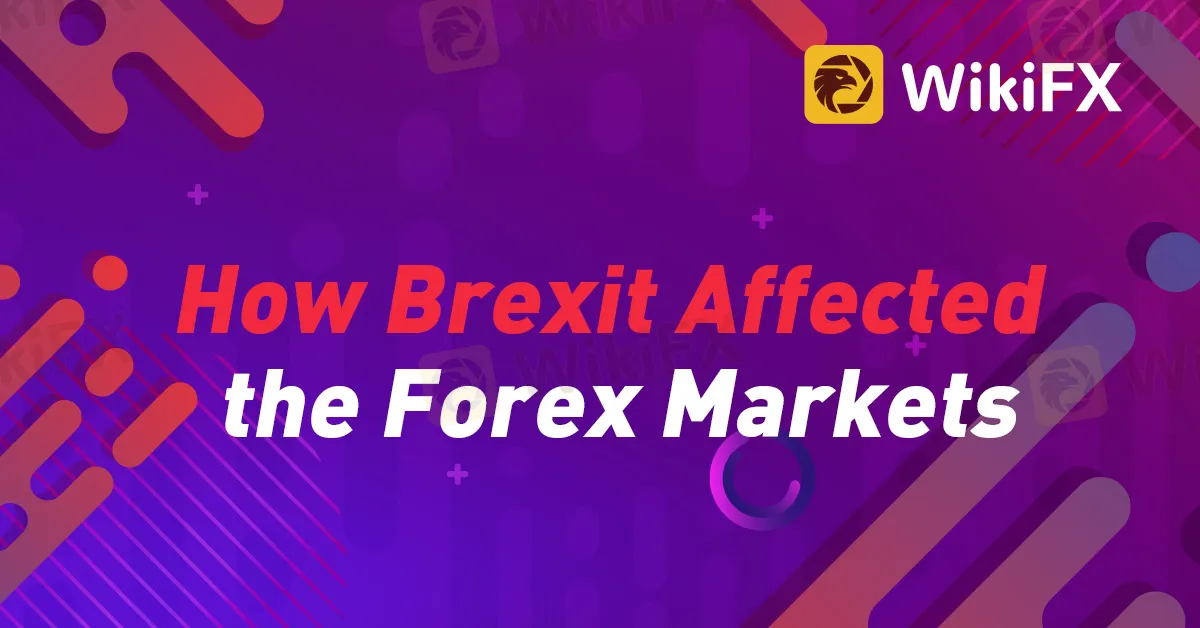简体中文
繁體中文
English
Pусский
日本語
ภาษาไทย
Tiếng Việt
Bahasa Indonesia
Español
हिन्दी
Filippiiniläinen
Français
Deutsch
Português
Türkçe
한국어
العربية
How Brexit Affected the Forex Markets
Abstract:The United Kingdom's decision to leave the European Union, commonly known as Brexit, had a profound impact on various industries, including the forex market. The uncertainty surrounding the negotiations and subsequent outcomes led to significant volatility and changes in currency valuations.

The United Kingdom's decision to leave the European Union, commonly known as Brexit, had a profound impact on various industries, including the forex market. The uncertainty surrounding the negotiations and subsequent outcomes led to significant volatility and changes in currency valuations.
Immediately following the Brexit referendum in 2016, the British pound (GBP) experienced sharp declines against major currencies such as the US dollar (USD) and the euro (EUR). The uncertainty surrounding the future relationship between the UK and the EU led to increased market volatility and a loss of investor confidence in the pound.
As negotiations progressed, the forex markets reacted to every development, with currency pairs involving the pound experiencing heightened volatility. Traders closely monitored political statements, economic indicators, and negotiation updates, adjusting their trading strategies accordingly.
Brexit also impacted the euro, especially for currencies closely tied to the EU economy. The euro experienced fluctuations as investors assessed the potential implications of Brexit on the European economy and the future stability of the EU. Currency pairs like EUR/GBP were particularly affected by Brexit-related news and market sentiment.
Moreover, regulatory changes accompanied Brexit. The UK's withdrawal from the EU resulted in the Financial Conduct Authority (FCA) taking over the regulation of the UK financial markets. These changes had implications for forex brokers operating in Europe, as they needed to adapt to new regulations and licensing requirements.
Navigating the forex markets during the Brexit period required careful analysis, risk management, and staying updated with the latest developments. Traders had to be prepared for sudden market movements and adjust their trading strategies accordingly.
As a trader, it is essential to access reliable information sources to stay informed about Brexit and its impact on the forex markets. WikiFX provides up-to-date news and analysis on market events, including the latest updates on Brexit and its implications for traders.

Disclaimer:
The views in this article only represent the author's personal views, and do not constitute investment advice on this platform. This platform does not guarantee the accuracy, completeness and timeliness of the information in the article, and will not be liable for any loss caused by the use of or reliance on the information in the article.
Read more

A Trader’s Worst Mistake: Overlooking Broker Reviews Could Cost You Everything
In today’s digital age, reviews influence nearly every decision we make. When purchasing a smartphone, television, or home appliance, we pore over customer feedback and expert opinions to ensure we’re making the right choice. So why is it that, when it comes to choosing an online broker where real money and financial security are at stake many traders neglect the crucial step of reading reviews?

Bank Negara Malaysia Flags 12 New Companies for Unauthorised Activity
Bank Negara Malaysia (BNM) has updated its Financial Consumer Alert List (FCA List) by adding 12 more entities, reinforcing its efforts to warn the public against unregulated financial schemes. Check if your broker made the list!

TradingView Brings Live Market Charts to Telegram Users with New Mini App
TradingView has launched a mini app on Telegram, making it easier for users to track market trends, check price movements, and share charts.

Will natural disasters have an impact on the forex market?
The forex market is known for its rapid responses to global events, but the influence of natural disasters, such as earthquakes and typhoons, can be less straightforward. While headlines may scream about catastrophic damage and economic disruption, the long-term effects on currency values often depend on a blend of immediate shock and underlying economic fundamentals.
WikiFX Broker
Latest News
The Withdrawal Trap: How Scam Brokers Lure Victims into Paying More
FCA to Investors: Think Twice Before Trusting These Brokers
Trump\s tariffs: How could they affect the UK and your money
Trump gambles it all on global tariffs he\s wanted for decades
TradingView Brings Live Market Charts to Telegram Users with New Mini App
Trump tariffs: How will India navigate a world on the brink of a trade war?
Interactive Brokers Launches Forecast Contracts in Canada for Market Predictions
Authorities Alert: MAS Impersonation Scam Hits Singapore
Stocks fall again as Trump tariff jitters continue
IG Group Acquires Freetrade for £160M to Expand UK Investment Market
Currency Calculator







